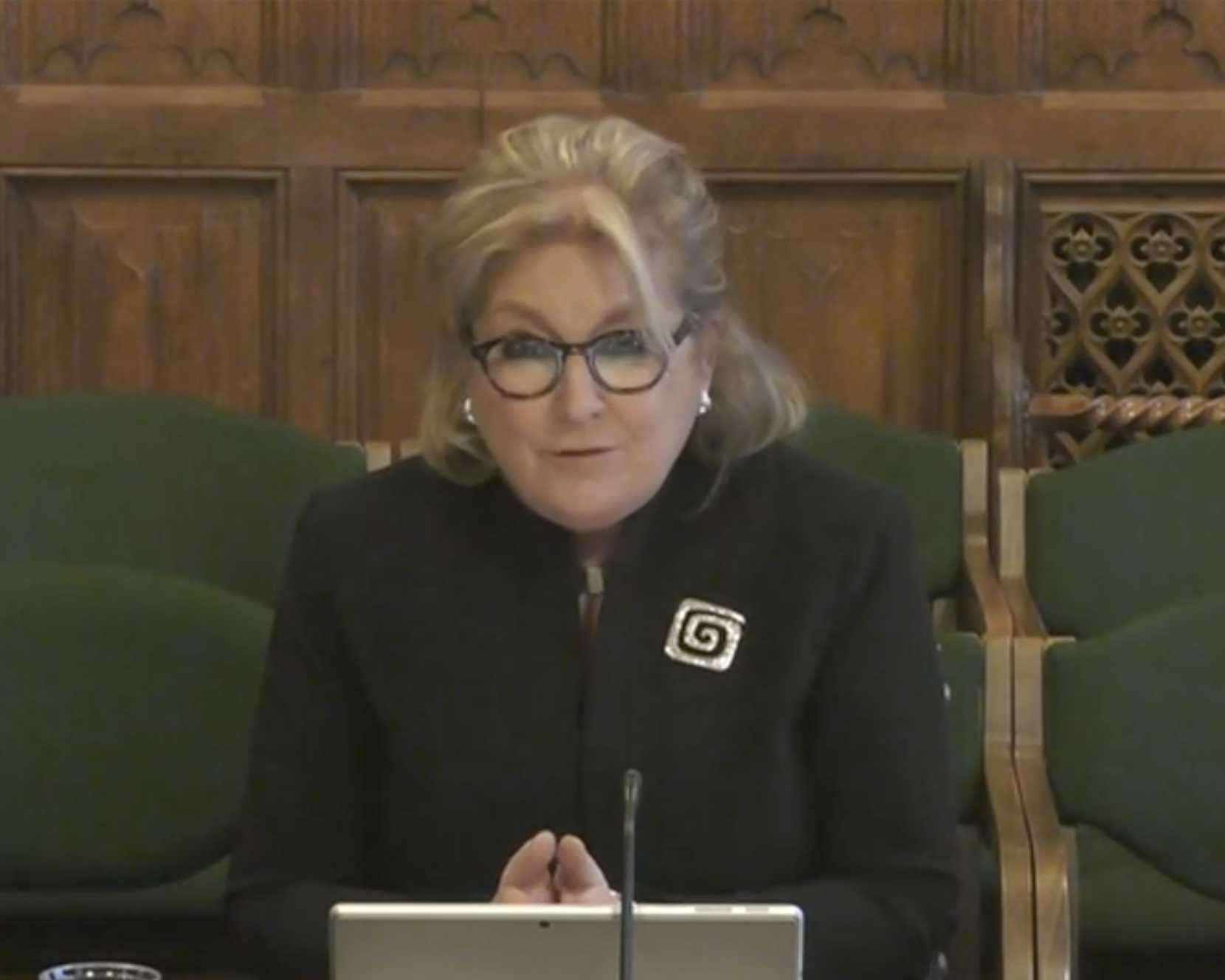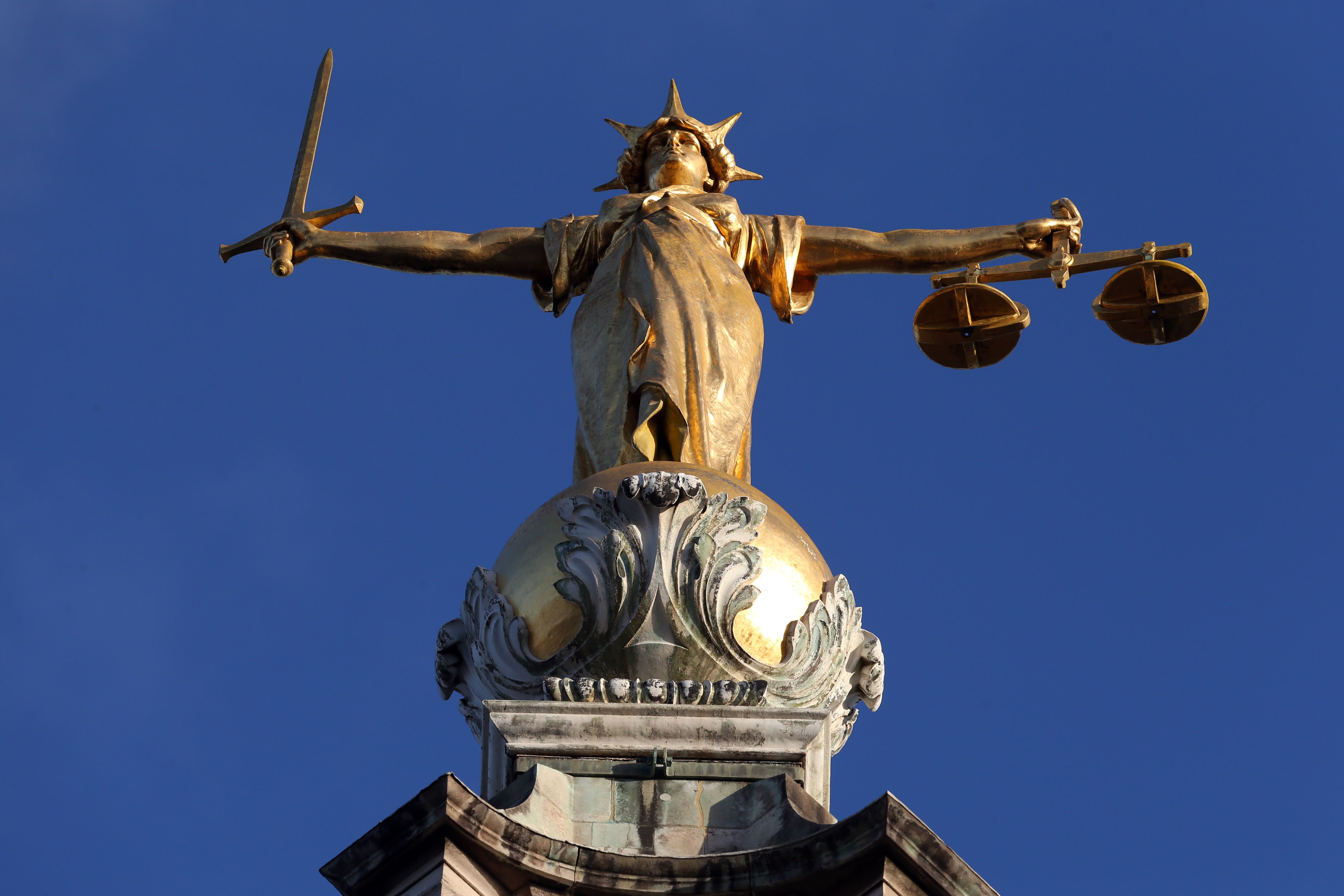Around 100 courtrooms closing every week due to ‘endemic’ dilapidation, warns Lady Chief Justice
Government will fail on 2025 pledge to cut record trials backlog without ‘radical reform’, says president of courts in England and Wales

Your support helps us to tell the story
From reproductive rights to climate change to Big Tech, The Independent is on the ground when the story is developing. Whether it's investigating the financials of Elon Musk's pro-Trump PAC or producing our latest documentary, 'The A Word', which shines a light on the American women fighting for reproductive rights, we know how important it is to parse out the facts from the messaging.
At such a critical moment in US history, we need reporters on the ground. Your donation allows us to keep sending journalists to speak to both sides of the story.
The Independent is trusted by Americans across the entire political spectrum. And unlike many other quality news outlets, we choose not to lock Americans out of our reporting and analysis with paywalls. We believe quality journalism should be available to everyone, paid for by those who can afford it.
Your support makes all the difference.Dilapidation is “endemic” in Britain’s crumbling court system, with around 100 unplanned courtroom closures every week exacerbating trial delays, the head of the judiciary has warned.
Appearing at the justice committee on Thursday, the Lady Chief Justice described courts with no drinking water and judges forced to hand out sentences to convicts in basement holding cells because panic alarms were broken in the courtrooms above.
She warned that a further 200 courtrooms come close to being rendered unusable by such problems every month.
“These are very serious problems, and of course they impact on performance, by definition,” Dame Sue Carr told MPs.
“You can’t use the court, you can’t list the case, you can’t be efficient. But beyond that, there’s also the knock-on effect on security, and there’s a knock-on effect, frankly, on morale. It doesn’t make you feel great if you are doing a difficult case and you’ve got a bucket next to you because the roof is leaking.”
In the past week alone, Sheffield Crown Court was forced to close after a burst pipe caused “catastrophic” flooding, trials at London’s flagship Rolls Building were moved due to a power outage, and it was decided that Blackpool Magistrates’ Court would be permanently closed due to the discovery of unsafe Raac concrete.
The backlog of cases in the criminal courts is now at a record high of more than 66,000 cases, having doubled in just four years. Of those, 6,500 cases had been stuck in the court system for more than two years, up from just 530 in 2019.
In a blow to Rishi Sunak’s government – which has vowed to cut the backlog to 53,000 cases by 2025 – Dame Sue said she believed this target was “not achievable” without “radical reform”.
The “endemic, ingrained” dilapidation of court buildings is one of the key issues fuelling trial delays, the Lady Chief Justice warned, with last-minute courtroom closures leaving officials “hand to mouth, scrabbling around trying to find solutions” so that hearings can go ahead.

Stating that justice secretary Alex Chalk is “definitely aware” of these problems, Dame Sue said: “At a very basic level, [government] has got to keep us safe. If you can’t do that then the courts won’t open. If we’re safe, then is it actually acceptable? Is it freezing cold? Is it boiling hot?”
Analysis of official figures by The Independent shows at least 71 crown court trials were cancelled in the year to September as a result of “equipment or accommodation failure” – more than three times higher than on average in the six years prior to the pandemic. A further 285 trials in magistrates’ courts were also cancelled.
These on-the-day cancellations – which can delay trials for months – are in addition to hundreds of other hearings rescheduled due to there being no judge or barrister available, and failures to bring suspects from prison cells to court in time, if at all.
Calling the dilapidated court estate “an indictment on the state of our justice system”, Law Society vice president Richard Atkinson said: “We have been raising concerns about the dire condition of our crumbling courts for some time and share the views of the Lady Chief Justice.
“Leaking toilets, broken heating, sewage, mould and asbestos were just part of the picture painted by our survey of solicitors about the state of the courts in which they work.”

“The courtroom closures only add to the delays faced by victims, witnesses and defendants,” Mr Atkinson told The Independent, adding: “Sustained investment is needed to repair and restore our creaking court estate.”
Tana Adkin KC, chair of the Criminal Bar Association, said: “It should be taken as a given that there are safe and working court rooms, with basic heating and cooling systems and roofs that don’t leak so that trials can go ahead at all and justice be done.
“We must not lose sight of the fact that the criminal justice system involves people and buildings: judges, court staff, working court rooms juries, defendants, complainants, victims and witnesses and criminal barristers and solicitors and their staff. All are participants in a process that is fundamental to our society.”
Describing repairing and rebuilding courtrooms as “a tangible sign of seriousness of investing again in our criminal justice system”, Ms Adkin said the justice system would benefit from a “dedicated criminal court buildings repair and modernisation budget” ring-fenced for at least five years.
A Ministry of Justice spokesperson said: “We’re investing £220m over the next two years to modernise and maintain the court and tribunal estate – ensuring it is equipped with the latest technology to deliver modern justice.
“HMCTS will continue to work closely with the judiciary so this investment is prioritised and targeted in the most effective way to minimise disruptions.”
Join our commenting forum
Join thought-provoking conversations, follow other Independent readers and see their replies
Comments